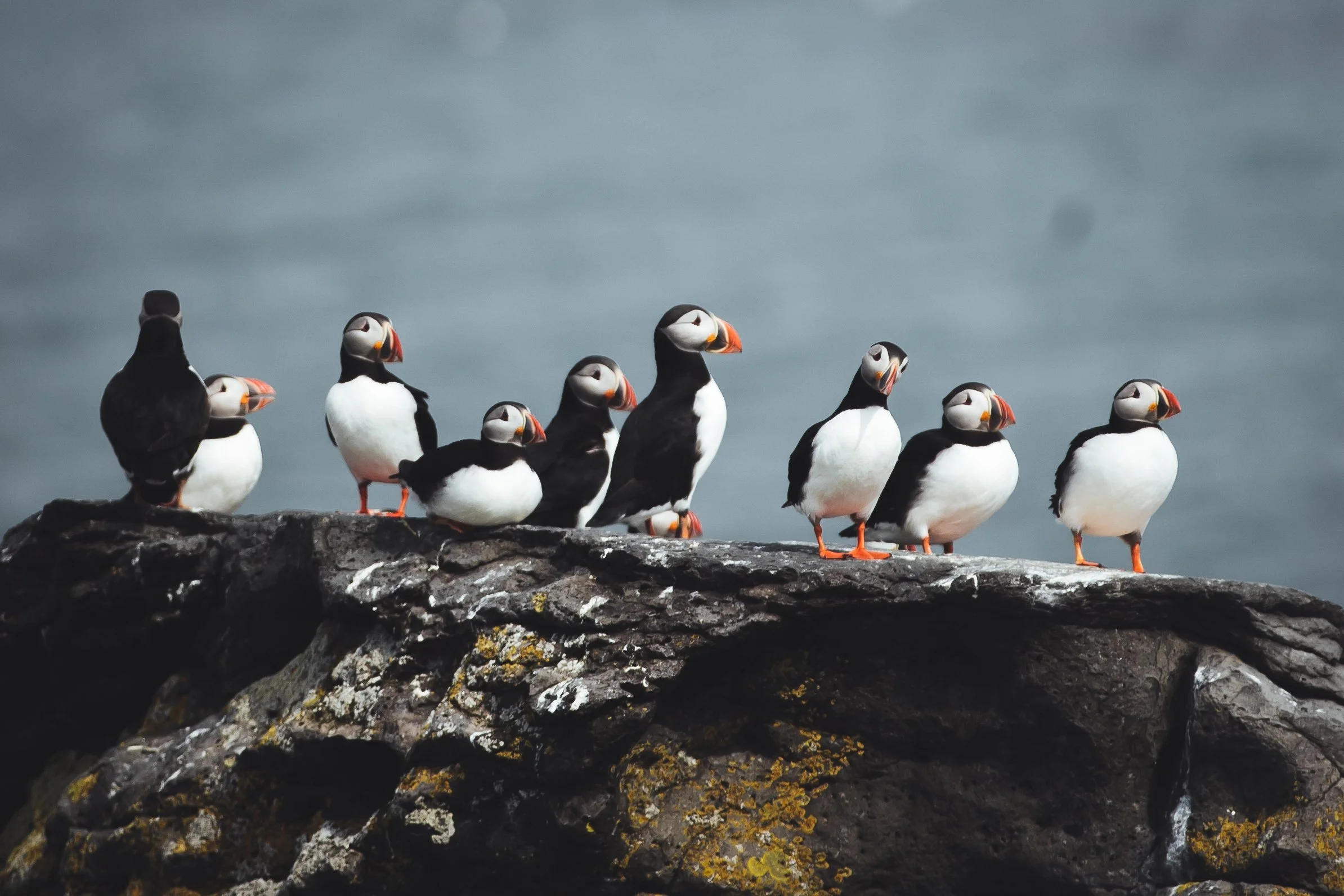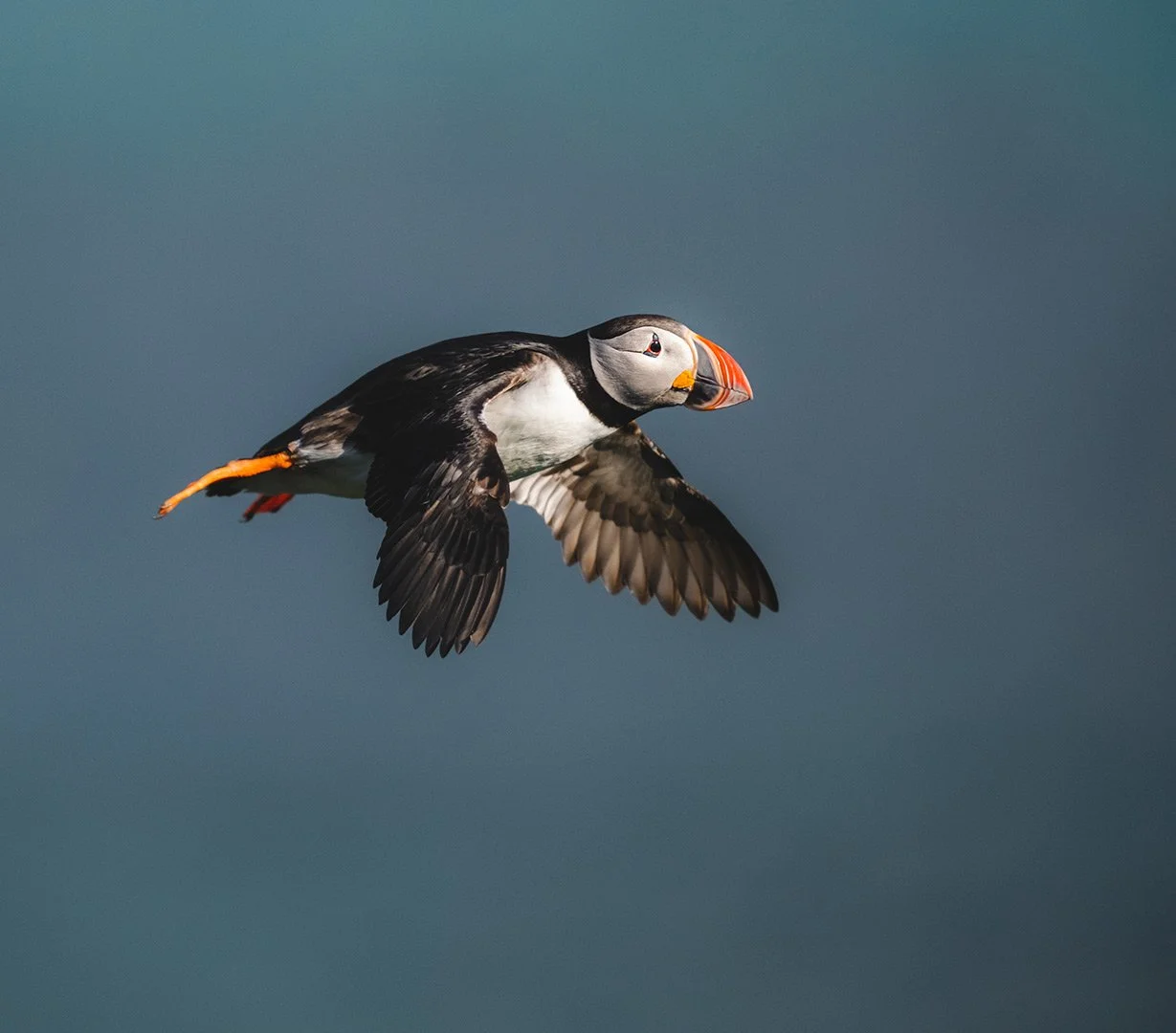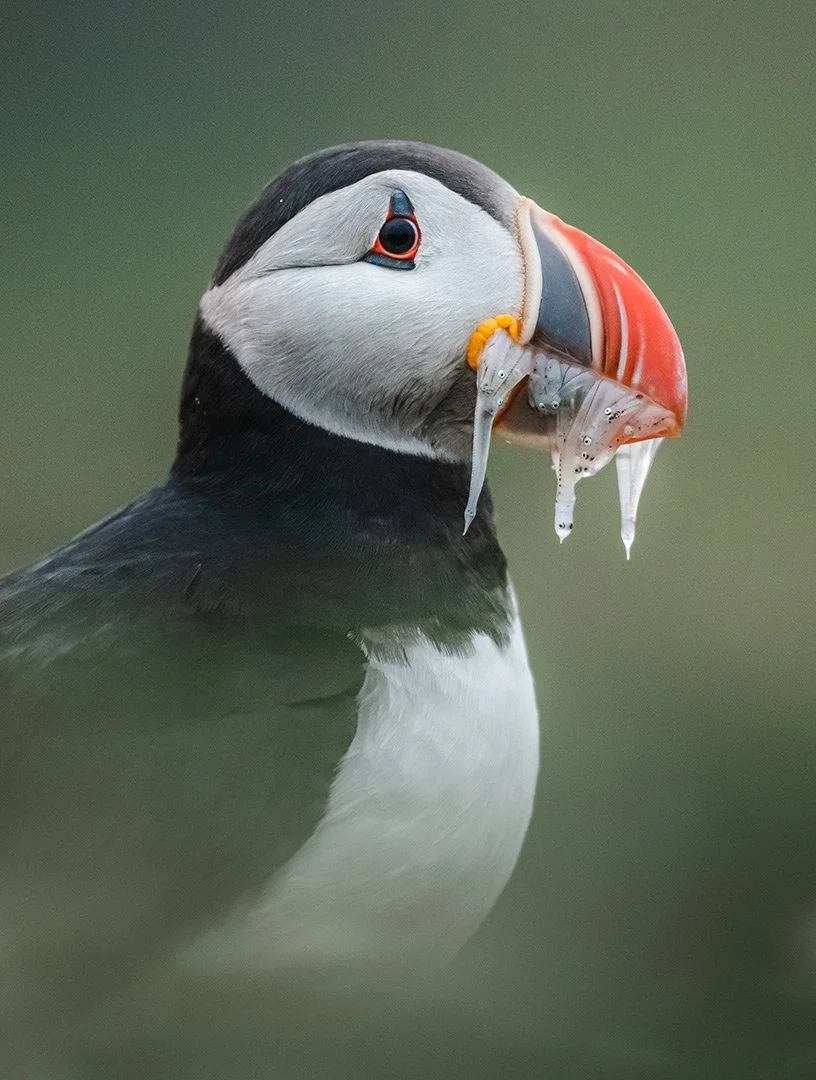An Urgent Call to Protect Iceland's Puffins
By Safina Center Fellow Belén Garcia Ovide
Atlantic puffin colony resting. ©Ása Steinars
Puffins, the iconic seabirds that have long been a symbol of Iceland’s rugged coastal beauty, are facing a precipitous decline in their population. This trend has spurred a coalition of environmental groups and concerned citizens to call for a halt to the hunting of these birds.
The Atlantic puffin (Fratercula arctica) is now classified as an endangered species, with their numbers dwindling due to a combination of climate change, overfishing, and unsustainable hunting practices.
Puffins captivate people from around the globe, drawing visitors to Iceland who are eager to see these charming birds. However, many are unaware that puffin hunting is still practiced by Icelanders, as a tradition. Despite this cultural significance, the rapid growth in tourism over recent decades has led to increased demand for puffin meat in restaurants, making the hunting unsustainable. The rising tourist interest contrasts sharply with the environmental impact of such practices, highlighting the need for a balance between preserving cultural traditions and ensuring the long-term survival of puffin populations.
Atlantic puffin in flight. ©Nico Schmid
Hunters can easily catch hundreds of puffins per day during the hunting season. We need to put it on hold to allow the puffin populations to bounce back. These birds are incredibly vulnerable to changes in their environment, and continued hunting only exacerbates their decline.
Puffins, like many seabirds, are highly susceptible to the impacts of climate change. Rising sea temperatures and shifting ocean currents affect the availability of their primary food sources, such as small fish and plankton. Additionally, overfishing further depletes these essential resources, making it increasingly difficult for puffins to find adequate nourishment. In the Westman Islands, the puffin population has shrunk by 70% since 1995, according to our colleague and bird expert, Erpur Snær Hansen, who has been studying puffins for more than 30 years.
Atlantic puffin holding prey in its beak. ©Nico Schmid
The decline of puffins is not just an environmental issue but also an economic one. Coastal communities in Iceland rely heavily on tourism, with puffin watching being a major attraction. Sustainable development in these areas hinges on the preservation of the natural habitats and wildlife that draw visitors from around the world.
Protecting puffins is crucial for the sustainable development of our coastal communities. Tourists come here to experience the unique wildlife and landscapes. If we lose the puffins, we lose a significant part of the Icelandic culture and an important source of income.
For the past three years, Ocean Missions has been collecting signatures to put an end to puffin hunting in the islands located in the Northeast Iceland Hope Spot, a designated area recognized for its ecological significance and biodiversity.
The campaign has garnered significant support, with more than 3,300 signatures already collected. We aim to present these petitions to the Icelandic government, urging immediate legislative action to ban puffin hunting in the Northeast Iceland Hope Spot and implement stronger conservation measures.
We have a responsibility to protect these birds for future generations. By taking action now, we can ensure that puffins continue to thrive in Iceland’s coastal ecosystems
As the world grapples with the broader implications of climate change, the plight of Iceland’s puffins serves as a poignant reminder of the interconnectedness of our environment and the urgent need for sustainable practices. The time to act is now, before it is too late.
For more information and to support the cause, visit Ocean Missions' website and join the fight to save Iceland’s puffins.
Atlantic puffin in flight. ©Nico Schmid




